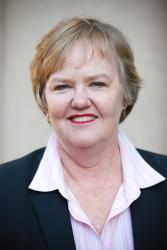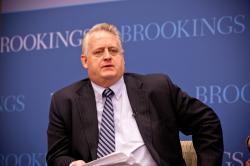

4:00 pm EDT - 5:30 pm EDT
Past Event
4:00 pm - 5:30 pm EDT
1775 Massachusetts Avenue, NW
Washington, DC
20036
Created in 2006, the U.N. Human Rights Council is approaching its first five-year review with a mixed record of success. The United States, which joined the council in 2009, recently worked through the council to secure continued investigations of violations in Sudan, Cambodia and Burundi, and established new mandates protecting freedom of association and women’s rights. Even with these steps, the council continues to face criticism for its political shortcomings. The ability of this body to promote and protect human rights at the national level remains an open question.
On October 19, the Managing Global Insecurity Project at Brookings hosted a conversation on the Human Rights Council’s mechanisms and its effectiveness, focusing in particular on the work of its independent experts. Senior Fellow Ted Piccone, deputy director of Foreign Policy at Brookings, presented the findings from his new report “Catalysts for Rights: The Unique Contribution of the UN’s Independent Experts on Human Rights.” Piccone was joined by Esther Brimmer, assistant secretary of state for International Organization Affairs; Paulo Sergio Pinheiro, former U.N. special rapporteur on human rights in Myanmar and Burundi; and Nonresident Senior Fellow Rich Williamson, a former U.S. special envoy to Sudan. The panelists discussed the strengths and weaknesses of the council’s instruments at the national level as well as possible areas for improvement.
Senior Fellow Elizabeth Ferris, co-director of the Brookings-Bern Project on Internal Displacement, provided introductory remarks and moderated the discussion. After the program, the panelists took audience questions.




Matias Spektor
April 15, 2024

Katharine Meyer, Rachel M. Perera, Michael Hansen
April 9, 2024

Vanessa Williamson
March 19, 2024